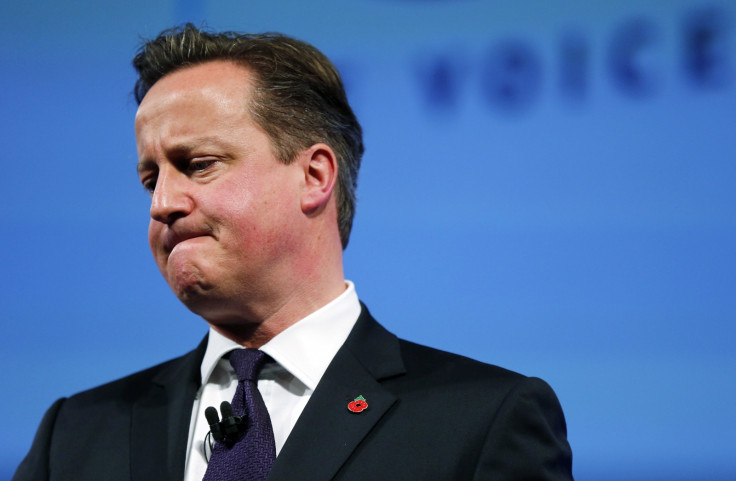UK immigration: David Cameron's self-defeating policy could lose Tories the general election

Immigration is one of the biggest issues in modern British politics and the debate will intensify in the build-up to what will be a close contest at the 2015 general election. Heat has just been added by the latest set of net migration figures from the Office for National Statistics.
In the year ending September 2014, 298,000 more people had immigrated to the UK than emigrated from it. That is 46,000 higher than the year David Cameron became prime minister.
This is very bad news for Cameron because he had pledged to get this figure down to the tens of thousands during his time in office. Here is Cameron's migration muddle explained.
Cameron wants a stronger economy and you cannot do that without immigration
Almost all of the academic evidence shows that, on the whole, immigrants put more into society than they take out. The taxes paid by immigrants will help to close the government's budget deficit and pay for key public services such as the NHS.
Cutting immigration would mean we have less money to invest in public services. And because immigrants to the UK tend to be of working age, and the country has an ageing population, they will help to fund the rising state pension bill in the future.
Population growth also feeds into economic growth. Put simply, the more people you have, the higher your potential productivity is. Immigration is a quick and easy way of boosting your population.
It's also cheaper than relying on higher birth rates among the native population, because immigrants are usually adults who come educated, skilled and ready to work. They are the full package when they show up at the door, ready to fill the many skills gaps the UK has, set up businesses and create – not take – jobs.
To reduce immigration is to hobble the growth potential of your economy, lower the amount in tax the government can raise and hurt public services.
Unless the UK quits the EU, Cameron cannot meaningfully cut immigration

Cameron wants to appease the loud anti-immigration section of his party and its supporters by toughening up on border control.
And he wants to woo back former Conservative voters who have strayed to Ukip.
So he uses heavy-handed rhetoric on immigration and is trying as best he can to manage down net migration to the UK.
He is failing because of the UK's membership of the EU, a condition of which is that it signs up to the free movement of people within the union.
It is simple: lots of Europeans want to come to the UK and Cameron cannot stop them if they are from an EU country.
The Conservatives have introduced a number of measures to make it tougher for non-EU migrants to enter the country, but it has not been enough for him to hit his net migration target.
Most voters want to see immigration cut
Cameron cannot reconcile the contradictions in his stance on immigration. He wants to cut it because that is a popular policy with voters. Cutting immigration would hurt the economy, but he wants a stronger one.
If we don't deliver on our side of the bargain, vote us out in five years' time.
Polling shows most voters think there is too much immigration, but there is little Cameron – or anyone, for that matter – can do about it while the UK is in the EU. He has promised a referendum on the UK's membership of the EU if his party wins the general election, but he wants us to stay in it.
Other EU leaders have told him there is no room for negotiation on the free movement of people because it is a founding pillar of the union. That includes the German Chancellor Angela Merkel, seen as the de facto chief of the EU.
So there is no chance of him staying in the EU and cutting migration to the UK, unless he wants to make the country so awful that nobody desires to come here anymore. Cameron is in a complete muddle over immigration and it is all his own fault.
Ironically, standing up for immigration – which he, deep down, believes in – would make him look more credible to voters even if they disagree with him. Britons respect honest people who stick their principles.
Cameron is being hoisted by his own petard

During the election campaign in 2010, before he was elected as prime minister, Cameron made a resounding promise to the British people.
He said his government would get net migration down to tens of thousands a year by the end of the parliament.
"If we don't deliver on our side of the bargain, vote us out in five years' time," Cameron said on an election leaflet, pitched as a contract between him and the public, which included his net migration promise.
As we enter the 2015 general election, the data shows Cameron has failed the impossible task he had set himself in 2010 and broken one of his promises to the voters. Now they might just take him up on his offer and sling him out of Downing Street on 7 May.
© Copyright IBTimes 2024. All rights reserved.






















